“I’ve always found that
‘no’ was a gift, if I didn’t get something I wanted,” muses Paul Hamilton
Williams II today. And in 1967, hearing “no” from White Whale made Paul
available to hear “yes” from future platinum record producer Richard Perry.
Perry had produced Tiny
Tim’s 1968 Reprise LP God Bless Tiny Tim, which contained the
Billboard Number 17 pop hit, “Tip-Toe Thru’ the Tulips With Me.” The flip
side of that 45 was “Fill Your Heart,” a song Paul co-wrote with offbeat
songwriter Biff Rose. After working on this song, Perry saw talent worth mining
in the then-unknown Williams, and made Paul the offer of a lifetime. Says Paul:
“Richard decided that he wanted to cut an album with me. And I was offered a
contract at Reprise. The idea of going in and recording an album was... there
was no way in the world that I was gonna do that alone.”
Armed with a batch of
songs, Paul decided to put together a band with whom to record them. He
recruited his brother, Mentor, on rhythm guitar, ex-Jefferson Airplane bassist
Bob Harvey, guitarist George Hiller, flautist Cynthia Fitzpatrick, and ex-Turtle
drummer Don Murray. With Paul handling lead vocals, this group of musicians
became the Holy Mackerel.
While Paul was working with
the Mackerel, he was also beginning a writing partnership with Roger Nichols,
who had just released his first and only LP for A&M, late 1967’s Roger
Nichols and the Small Circle of Friends. Chuck Kaye, then A&M’s head of
publishing, and coincidentally the roommate of White Whale’s Lee Lasseff, took a
liking to Paul’s work with Biff Rose, and put Paul and Roger together. Paul
recalls: “Biff was my first collaborator. He went and played A&M everything he’d
ever written; they liked his songs, and the ones that I’d written as well. When
he told them this guy Paul Williams had written the lyrics, they said, ‘We want
to meet him.’ They were really looking for that lyricist for Roger.”
The Holy Mackerel began
recording their eponymous LP in March 1968 at L.A.’s legendary Sunset Sound
Studios. The first two tracks cut were “The Golden Ghost of Love” and an early
version of the Nichols/Williams song “To Put Up With You,” which Paul was to
record again for his 1970 album Someday Man. Later that month, the band
moved operations over to United Studios, adding other musicians, including
bassist Steve LeFevre.
During the spring 1968
recording of the album, Perry schooled the newly formed Mackerel on the myriad
possibilities of the recording studio. “One of my favorite things on the album
was a serendipitous moment,” Paul remembers. “We were sitting in the studio
recording the strings on the ending of ‘1984.’ Either Richard Perry or the
engineer reached over and accidentally punched out the drums, and it was a
great accident. We pulled out all the other rhythm instruments and went,
‘Oh, my God.’ It was wonderful; all of the sudden it had this space
odyssey kind of feel to it.” Paul continues, laughing, “There are times when
(the album) almost sounds like a ‘family album,’ there’s such simplicity. I can
almost hear (it) in my brother’s vocals... ‘Wow, we’re in the studio!”’
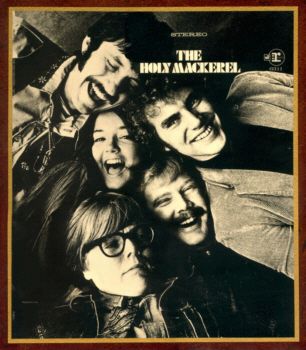
The original first album cover for Holy Mackerel
Recording continued through
the spring and summer. An album jacket was designed picturing the Mackerel’s
original lineup; however personnel problems necessitated that new cover photos
be taken before the album’s release. Bassist Bob Harvey wrote only one song, one
of the most overtly psychedelic cuts on the LP (the electric sitar-laden
“Wildflowers”) then left the band before the album’s completion. The Mackerel
soon replaced Harvey with studio whiz and future Elvis Presley bassist Jerry
Scheff; then drummer Don Murray was replaced by Michael Cannon. George Hiller
explains: “Don wanted to go play in nightclubs and we couldn’t imagine why. I
guess he didn’t feel comfortable with the ease with which (the Mackerel’s album)
all came together.” (Buffalo Springfield drummer Dewey Martin also played on
The Holy Mackerel although it’s unclear on which cuts.)
A confluence of styles is
immediately apparent upon listening to the completed LP. There’s the
Springfield-informed country rock of “The Somewhere In Arizona At 4:30 AM
Restaurant Song (And Now I Am Alone)” and “The Wild Side of Life,” and the
bluesy “Nothing Short of Misery,” all sung by Mentor. There’s the infectious
sunshine pop of “Bitter Honey.” There’s the soft psych of “1984” and
“Wildflowers.” There’s even the spoken-word, spoonerism-based cut “Prinderella,”
an odd track featuring the voice of Bob Harvey and the piano and harpsichord
accompaniment of Michel Rubini. Musically, the album had something for everyone,
but sadly, few of them would get a chance to hear it.
Sandwiched in the Reprise
catalogue between Hendrix’s Electric Ladyland (Reprise 6307) and Neil
Young’s first solo LP (Reprise 6317), The Holy Mackerel (Reprise 6311)
failed to make a big splash with record buyers. Perhaps it was because the
album’s early November release date virtually assured that it would be lost in a
sea of Reprise’s higher-priority Christmas ‘68 releases, or because without
having performed any significant gigs, the Mackerel had no ready-made following
eager to snap up a release from the band. In any case, neither the LP nor any
of their three singles managed to chart. About the album, Paul laments: “I’m not
sure if even my family bought it.” Despite receiving a “Special Merit
Pick” in Billboard, the eclectic LP was barely promoted by Reprise, and
remained a virtual secret to the music world at large, which turned out not to
be that big an issue, since by the time The Holy Mackerel was released,
the band had actually already been split up for a few months. George explains:
“Jerry (Scheff) got his job playing bass with Elvis. Each of us really had
different goals and objectives... I think probably (the main reason for the
breakup was) Paul’s feeling enough confidence (at that point) that since he put
together this group of songs for our album, he could probably go out and do an
album on his own. Paul really was the heart and soul of the (Mackerel). He’s
just a genius, a pretty multi-talented person.”
Today, Paul describes his
experience with the Mackerel this way: “What happened was we kinda wound up in
the studio before we were really a band. We were a band trying to form.
It’s me kind of looking for my musical voice. I was a huge Buffalo Springfield
fan; you can hear that in some of the stuff. I was a big Beatles fan, and you
can hear bits and pieces of that, too. My brother really loved country, and I
ended up writing a couple of country songs, (but) I think they were written from
the point of a dilettante. They’re not bad songs, but they’re not quite me being
me yet. They’re indicative of the craftsman more than the artist.”
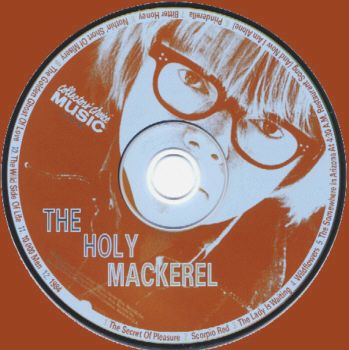
Despite the LP’s
shortcomings, there are tracks of which Paul remains particularly fond: “I find
myself most drawn to ‘10,000 Men’ and ‘1984.’ There’s an underlying philosophy,
a kind of old-souls thought that I think is older than my years at that point.
You have to realize that it was 1968. 1984 meant Big Brother, George Orwell’s
1984, the opposite of what all of us hippies were dreaming about. And with
1984 being decades away,” he says, laughing, “it was never actually going to
get there; it was so far in the future. The lyric expressed such hope for a
simple world.”
Mentor Williams, the
successful writer and producer of “Drift Away” for Dobie Gray in 1973, closes
with these comments about his talented brother and Holy Mackerel bandmate:
“Paul’s dedicated his entire life to the arts: to writing poetry, to acting, and
to music. I have nothing but admiration for my brother. He’s kind of been my
mentor all these years. What an incredible example for me.”
-Steve Stanley
Los Angeles, CA February, 2005
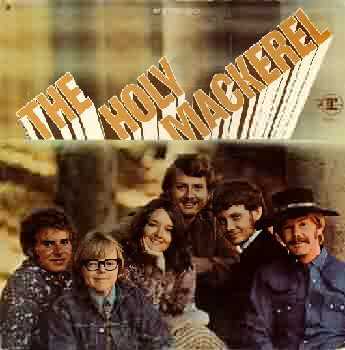
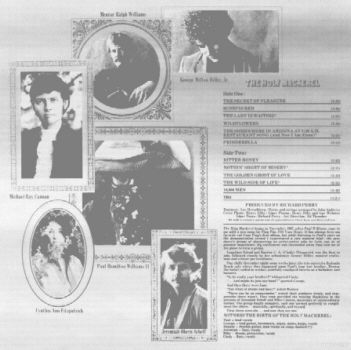
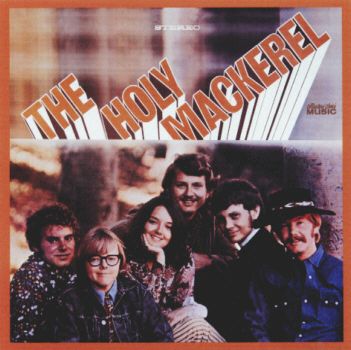
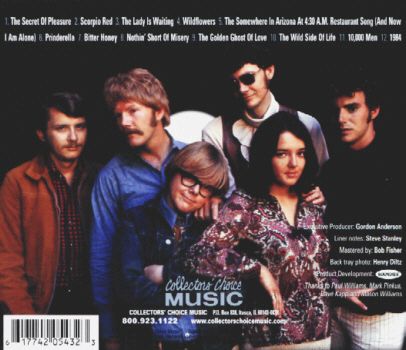
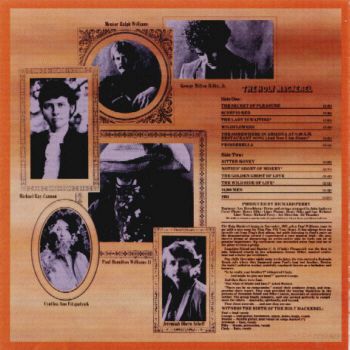


 Return to Paul Williams Music and Acting Home Page
Return to Paul Williams Music and Acting Home Page